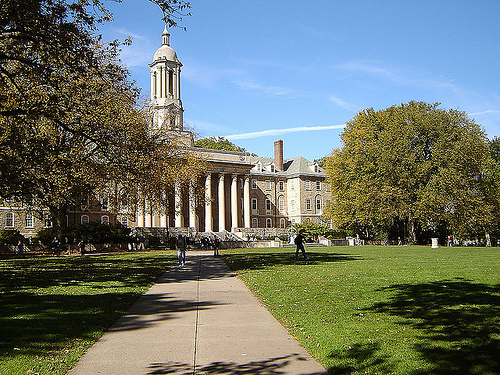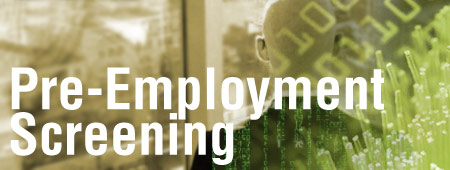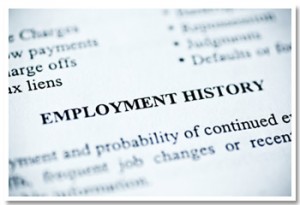Educational credentials can be an important part of an employer’s decision making process in hiring. Educational achievement tells an employer a great deal about an applicant’s ability, qualifications, and motivation. Many employers feel that educational qualifications are a critical factor in predicting success on the job. For many positions, education is a prerequisite in terms of subject matter knowledge or for obtaining the appropriate license for the position.
Surveys suggest that as many as 30% of all job applicants falsify information about their educational backgrounds. The falsifications can include outright fabrications such as making up degrees from legitimate schools the applicant never attended or valueless degrees from diploma mills.
An applicant can also falsify his or her educational achievements based upon some semblance of fact, such as claiming degrees from schools the applicant actually attended but did not obtain the degree claimed. Typically a candidate turns their months or weeks of attendance into an AA degree, or claims a BA or an advanced degree even if they did not complete the course work or fulfill all graduation requirements.

Colleges and universities also have a vested interest in confirming educational accomplishments. Confirming an applicant received a degree from their school helps their graduates and promotes the reputation of their school. Conversely, uncovering the fraudulent use of the school’s good name helps to preserve and protect the school’s reputation.
Background firms verify education in the U.S. in two ways. One way is to contact the school, usually through the registar’s office. Before doing that, however, a competent background firm will first run the name of the school against various databases to ensure that the school is legitimate and accredited, and not a phony degree mill. A number of schools will require a written release or a fee, which can delay the verification. Delays can also occur because schools operate on an academic schedule, which can mean the administrative offices are closed during holidays and the summer months.
The other options available to screening firms and employers are online services that have contracts with schools to gather degree information from schools, thus acting as the schools’ agents.
For some job applicants, getting a college diploma apparently no longer requires years of hard work, taking tests, paying tuition or even reading a book. Why bother going through the formalities when all a person needs is a credit card and a web browser in order to buy an authentic looking diploma that mimics real colleges, universities and even high schools across the U.S.? Go to any search engine and run keywords such as “Fake Diploma” and anyone can instantly “graduate” from nearly any school in America with a very handsome and authentic looking diploma suitable for hanging.
One such website advertises that it creates “very realistic diplomas/transcripts. These diplomas/ transcripts are extremely high quality printed on official parchment quality paper. You can show your employer and they will never doubt that you indeed attended college. You will not find better quality anywhere!!!”
Some of these sites “officially” caution that the diplomas and transcripts are intended for “Novelty and Entertainment Use Only.” However, the fake documents you receive do not have a disclaimer written any place on them. When presented with a physical diploma or transcripts, employers should fax a copy to the school to confirm its authenticity. Most background firms can tell stories of faxing copies of degrees, supplied by the applicant, to high schools and colleges only to be told the degree is a fake.
Verifying high school education can present particular problems, due to the fact that there are so many high schools, and the fact they operate on an academic schedule. The most difficult degree to verify is typically a GED, since it requires additional time and effort to track down the office that has the information.
Adding to the challenge is that some degree mills and fake online schools have even created fake accreditation agencies to falsely vouch for the fake schools. In the U.S. schools are generally accredited by private organizations, that are recognized as legitimate accreditors by the Council for Higher Education Accreditation (CHEA) found at www.chea.org. The U.S. government, in response to these issues, has created a web site where employers can look up a school to determine if and how it is accredited. The web site is at: www.ope.ed.gov/accreditation/search.aspx which provides searches of schools by accreditation agency.
ESR goes through an extensive procedure to verify that a school is legitimate. First, ESR compares the schools to schools that are known to be legitimate. If the school does not pass that test, ESR examines numerous “diploma mill” lists. However, those lists are a moving target since new diploma mills can be easily created. If a school is not on either list, ESR then carefully reviews the schools web site and in particular, looks to see what “accreditation” the school claims.
The problems with degree mills, however, should not be confused with legitimate vocational or trade schools. Each state has an agency in charge of certifying state-approved educational programs. If there are questions about the legitimacy of a vocational or trade school, then an employer should contact the appropriate authority in their state. There are numerous distance learning programs available on the internet as well. An employer should evaluate the program to determine if it has relevance to the job.
The bottom-line is that employers should not take educational accomplishments at face value without ensuring that the applicant actually has obtained the degree, and that the degree is from a legitimate educational institution.
Source: esrcheck

 Follow
Follow










